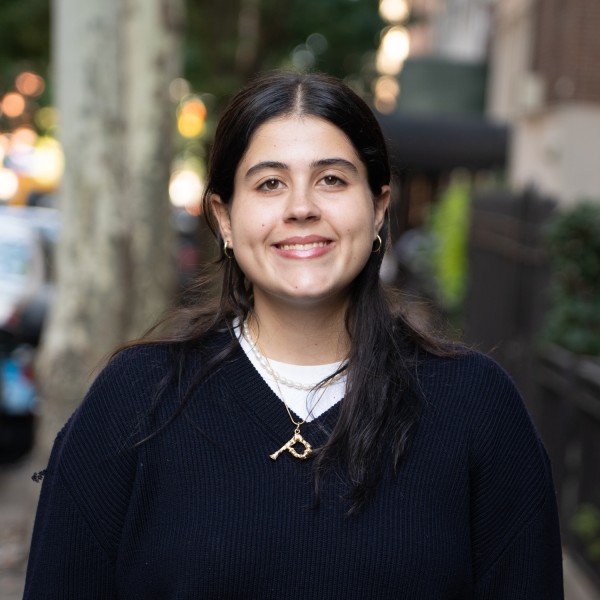Opinion: NYU should promote more conversation clubs
Since NYU has a language requirement, it should promote conversation clubs, which are some of the best ways to practice a new language.
NYU should promote its clubs that focus on practicing new languages. (Illustration by Aaliya Luthra)
November 21, 2022
Every Friday at 2 p.m., students from all levels of Italian conversational skill gather at NYU’s Casa Italiana Zerilli-Marimo to talk, hang out and enjoy complimentary snacks. Surrounded by a lush garden and white bistro chairs, one feels transported out of the city.
In this serene, Italian-esque environment, Italian speakers of all fluency levels can converse in a safe space, whether it’s for their language requirement, minor or major or simply cultural interest. Clubs like the Italian Club at NYU offer opportunities for students to discuss why they’re learning the language, their connection to Italian culture and overall university life.
NYU’s College of Arts & Sciences has a foreign language requirement, which many students have mixed feelings about. In order to make sure students enjoy learning the language, instead of suffering through it, the university should promote and organize more language speaking and cultural clubs. Students can meet new people who speak the language, practice conversational skills in a casual setting, and step out of their comfort zone without worrying about their class grades slipping. Besides, what good is taking classes in a language if you never speak it again?
“What I love most is that we are all passionate about Italian language and culture, so we are vocal about our plans to travel one day and our reasons for why we started,” said Stella Magni, a member of the Italian Club. “There’s always a new face to meet at the club and we encourage everyone to bring friends who have any and every level of Italian.”
One cannot learn a language without practicing speaking it, and NYU has had efforts to promote that in the past. A CAS program called Speaking Freely had students participate in 75-minute voluntary language coaching sessions in Arabic, French, Hindi, Italian, Japanese, Russian, Mandarin and Spanish, free of charge. This program, created to help students with language barriers and fluency, is not available this 2022-23 academic year, with no direct explanation from the university, though it’s possible the pandemic played a role. Promoting language conversation clubs is the next best alternative.
Other language departments have facilitated similar activities, like the English Conversation Club event and the French Club’s Café et Conversation. Additionally, almost every language department offers a conversation class required to complete a minor. But those classes require a certain level that beginner students who are fulfilling their language requirements don’t meet. Conversation clubs allow students a safe and welcoming space to practice the language, and truly immerse themselves.
“We are the NYU Italian Club and we welcome you with open arms, just like your nonna,” the NYU Engage page for the Italian Club reads. “No knowledge of the Italian Language needed whatsoever… that’s what the Italian Conversation Club is for.”
Most students who attend the weekly meetings of the Italian Club are not only interested in practicing their conversational skills but want to speak to other students they would typically not have met. I have made new friends that I wouldn’t have met otherwise, which makes going to the club every Friday exciting. At a school as sprawling as NYU, finding communities can at first seem difficult. But clubs are the perfect solution to this problem, too.
There is a certain kind of power when people connect through a language or specific culture that is sometimes not found in the regular NYU academic setting — especially when you can enjoy Italian delicacies in the process. This year, there is always at least one native Italian speaker at Italian Club meetings to help if anyone needs them. Precisely for this reason, NYU should promote more language speaking and cultural clubs.
WSN’s Opinion section strives to publish ideas worth discussing. The views presented in the Opinion section are solely the views of the writer.
Contact Valentina Plevisani at [email protected].




























































































































































